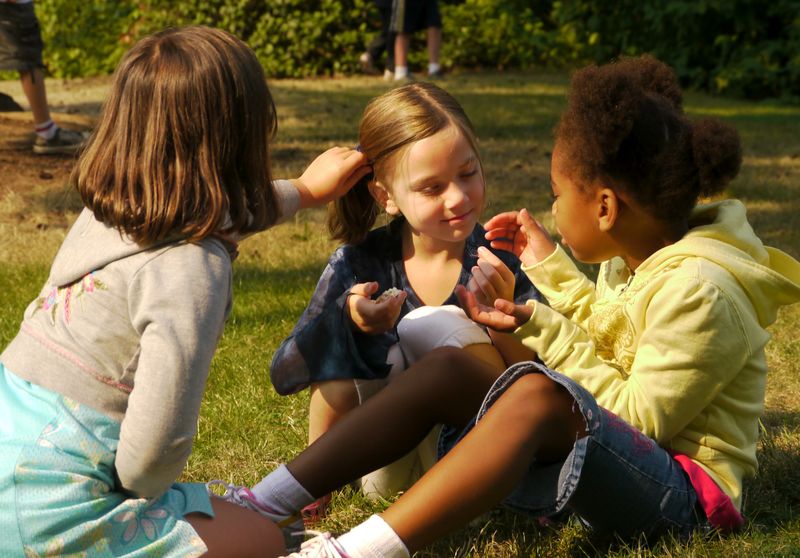Discovering Heritage

Your children are not your children
They are the sons and daughters of life longing for itself
and though they are with you they belong not to you
you can house their bodies but not their souls
for their souls dwell in a place of tomorrow
which you cannot visit not even in your dreams
…from Sweet Honey In the Rock's adaptation of Kahil Gibran's The Prophet
We had a wonderful opportunity on Tuesday night this week to come together as a community and begin the conversation we need to be having about supporting our children to develop strong and healthy multicultural relationships. With the help of Opal 2 teacher, Zalika Gardner, a skilled facilitator of reflective discussion intended to support the development of cultural competence, we courageously opened the door to a world that it is time we explored together. Zalika brought with her a colleague and fellow parent who has worked with skinhead youth (among others) to broaden their understanding of stereotypes, bias, priviledge and predjudice. She shared strategies to support our very youngest children, examples of picture books to begin conversation, and encouragement to accept the emotions that run through these experiences and memories.
There is no aspect of our work together in which the fundamental "Parents as Partners" is more so. We must develop structures that support us to push past the discomfort of getting to know one another, lean in and listen to one another's stories with the understanding and compassion we wish to see in our children. Because it is true, we cannot just give them the ideas we wish them to know. Nothing is rote about culture, identity and belonging.
Here are a few resources to energize our thinking about these issues:
Anderson Cooper 360 has recently commissioned a study of racial attitudes in children.
All children need their families to support their understanding of their own cultural heritage.
The importance of staying focused on strengths.
How will we make this practice a part of our Opal Heritage? Can we become a school where all adults take care for other people's children? Where we've developed a layer of partnership with homes and neighborhoods that creates the world we want our children to live in?
The point is for teachers and parents to think of themselves as masters and to challenge their apprentices. If the parent watches TV instead of reading, or the teacher reads one book a year—I'm told that's what the average teacher reads—that's the message the kids will get. But if the adults read and write and talk about current events, the kids will do it, too.
Howard Gardner
This letter to a teacher reminds us why it is so important:
Dear Teacher,
I am the survivor of a concentration camp. My eyes saw what no person should witness:
Gas chambers built by learned engineers.
Children poisoned by educated physicians.
Infants killed by trained nurses.
Women and babies shot and burned by high school and college graduates. So I am suspicious of education. My request is: Help your students become human. Your efforts must never produce learned monsters, skilled psychopaths, educated Eichmanns. Reading, writing and arithmetic are important only if they were to make our children more humane.
From Teacher and Child by Haim Ginott
Included in Lisa Delpit's Other People's Children, 2005
We can't give our children our thoughts. What we CAN do is create experiences in which they will develop their own. Our intentional and proactive design of these experiences will support the thinking we hope to inspire. And it will begin to ensure that the conflicts and hurts in our private and public histories are not repeated in the place of tomorrow.


Beautiful. So much of this work is about helping/facilitating children to find and notice their “self” and, that “self ” in conjunction with others. This takes so much listening and observing and connecting. And just as you (and Gardner) state, it is the adults which must engage and continue on this very same path for themselves in their own lives. This is what makes teaching so rich and challenging, the yearning to engage in multiple and interconnected ways, the desire to touch on what it is to be human- to create, to change, to risk, to reflect, to make better.
Parents should expect that even if they want all their children to follow what they want, they can’t expect that they will follow.